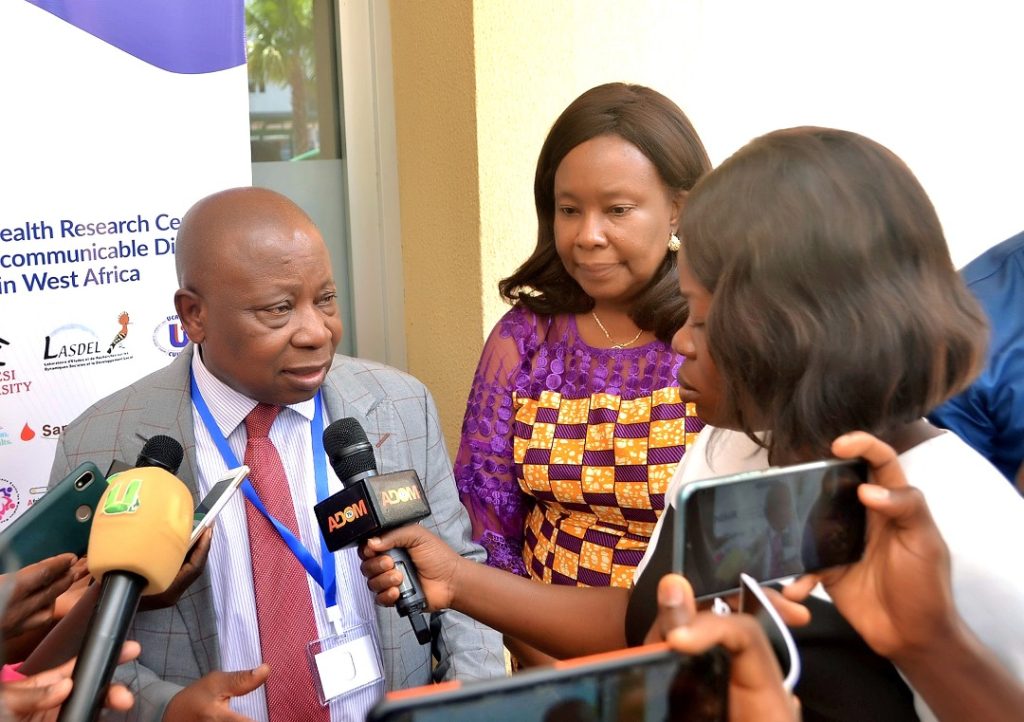By Iddi Yire
Accra, Oct 04, GNA – Mr Kwaku Agyeman-Manu, the Minister of Health, has expressed gratitude for a funding support of 10 million pounds from the United Kingdom Government for high-level research into Non-Communicable Diseases (NCDs).
He noted that the project, funded through the Department of Health and Social Care (DHSC), and the National Institute of Health and Research (NIHR) would be executed over the next five years.
The implementation is co-led by the London School of Hygiene and Tropical Medicine, and the Ghana College of Physicians and Surgeons.
This comprises a cluster of research and three academic institutions in West Africa – the Catholic University of West Africa in Bobo-Dioulasso, Burkina Faso, LASDEL in Niamey Niger, Ashesi University in Ghana, the Ghana College of Physicians and Surgeons, and the London School of Hygiene and Tropical Medicine.
Mr Agyeman-Manu said this at the Public Announcement of the NIHR Global Health Research Centres West Africa (Stop NCDs) Award in Accra during a two-day meeting attended by participants from Ghana, Burkina Faso and Niger.
“I must say that the timing is apt because the prevalence of NCDs is increasing globally and is currently the leading cause of death and disease burden worldwide, including our sub-region,” the Minister said.
He said NCDs were among the topics discussed at the just ended United Nations General Assembly.
The World Health Organisation (WHO) says heart diseases, stroke, cancers, diabetes and respiratory diseases now outnumber infectious diseases as the top killers globally, accounting for about 74 per cent of all deaths.
Mr Agyeman-Manu said those conditions were mostly due to modifiable risk factors, which include tobacco use, unhealthy diet, physical inactivity, harmful use of alcohol, and air pollution.
He added that, unfortunately, the disease control structures in West Africa priorities had been traditionally driven by the burden of communicable diseases.
He said despite an increasing trend in NCD-related morbidity and mortality, implementation of global interventions such as WHO policy recommendations remained slow.
“For example, Africa was off track in achieving the WHO recommendations for tackling NCDs targets for the 2015 and 2016 deadlines,” he said.
It appears that despite the initial achievements by African countries towards fulfilling the commitments in the 2011 UN Political Declaration and the 2014 outcome, Africa’s commitment to implementing the NCD policy responses had waned, Mr Agyeman-Manu said.
He said there was no doubt that the region had been slowly responding to the increasing disease burden and most interventions addressed individual diseases rather than focusing holistically on people.
A recent World Bank report indicated that unless urgent action was taken, the rising NCDs burden would add great pressure to the already overstretched health systems and pose a major challenge to development in the sub-region, he said.
Mr Agyeman-Manu said in Ghana, the Ministry of Health with the support of its agencies and stakeholders launched the National Policy for NCDs in March this year with a goal to “ensure that the burden of NCDs is reduced to the barest minimum to render it of little or no public health importance and an obstacle to socio-economic development”.
That, the Minister said, was aligned with the ideals of the National Health Policy, 2020, and the Universal Health Coverage Roadmap (2020-2030), which calls for the use of multisectoral collaboration as a mechanism for addressing, in a comprehensive manner, all the social determinants of health for better health outcomes.
Consequently, the development of the comprehensive policy framework on NCDs had received a high political commitment.

Professor Richard MK Adanu, the Rector, College of Physicians and Surgeons, said the College was greatly honoured to be a recipient of the award for the prevention of NCDs in Ghana and the sub-region.
Professor Irene Agyepong of the Public Health Faculty of the College said the Accra meeting would enable stakeholders to find out what was workable for them with regard to combating NCDs.
Dr John Nkrumah-Mills, President, College of Physicians and Surgeons, who chaired the meeting, lauded the NIHR and the UK Government for their efforts in combating NCDs.
GNA